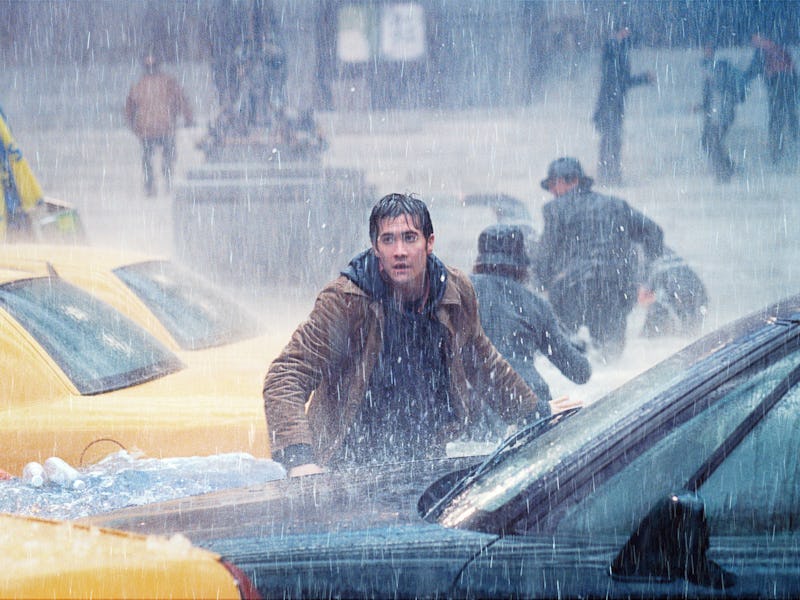Love it or Hate it, The Day After Tomorrow Belongs in the Disaster Movie Hall of Fame
Roland Emmerich made up for a silly premise with simple thrills and real spectacle.

You can’t talk about the modern-day disaster flick without mentioning Roland Emmerich. The German director essentially remade the genre for the 21st century, solidifying the tropes audiences would applaud and deride in equal measure. Emmerich’s best films are defined by his absurdity, but there’s also something memorable about his work, even at his lowest points (read: Moonfall).
Any disaster movie worth its salt will pull you in and refuse to let go, even as it pushes the very limits of logic. They may be falling out of favor, but Emmerich’s work was iconic for a time. His projects are impossible to look away from, and not just because he’s so keen on destroying national landmarks. The Day After Tomorrow, in particular, brought a fresh perspective to a much-derided genre.
By the time The Day After Tomorrow hit theaters, Emmerich had been directing for 25 years. He’d had hits and misses, but his ‘90s run cemented the filmmaker as a bombastic visionary. From Stargate to Independence Day to the misguided Godzilla and eventually The Patriot, Emmerich was the go-to guy for fist-pumping spectacle. His talents are arguably best used in The Day After Tomorrow, which grounded his appetite for destruction within some vague semblance of reality.
In the 2004 film, it’s not aliens or mutated lizards threatening Earth, but mankind itself. The “villain” is nature’s retribution in the wake of the climate crisis. Global warming can’t really trigger a new Ice Age (not overnight, anyway), but Emmerich frames the possibility in such a way that you can’t help but consider it.
The apocalypse brings our characters back to basics and ups the stakes.
It helps that the director rounded up an insanely credible cast to sell such an out-there premise. Dennis Quaid is Jack Hall, a paleoclimatologist who tries to warn the world of an impending apocalypse. By the time world leaders are ready to hear what he has to say, it’s too late. Snow starts falling in India, tornadoes tear through Southern California, and New York is effectively flash-frozen. The climate shift Jack predicted advances at an alarming rate, plunging the Northern Hemisphere into crisis after crisis.
Adding a personal stake to Jack’s plight is the fact that his son Sam (Jake Gyllenhaal) is stuck in the Big Apple when the worst of the storm surges hit the city. While the rest of the world hunkers down, Jack and his team set out to rescue Sam and his academic decathlon team. On foot. From Washington, DC. Yes, the fact Jack has to walk through sub-Arctic terrain to save his son is silly, but the stakes are also appropriately high, and it helps that our hero’s end goal is something so simple as surviving a 200-mile trek.
The destruction on display in The Day After Tomorrow is ludicrous, but it still makes for some nail-biting spectacle.
That simplicity allows Emmerich to beef up the interpersonal stakes. Jack and Sam fall into the age-old Disaster Family trope of semi-estranged father and son bonding amid catastrophe, and Sam also has a huge crush on one of his classmates, Laura (Emmy Rossum). When she’s injured trying to save a group of tourists, Sam realizes that something as benign as an infection could be the difference between life and death.
The Day After Tomorrow is no misunderstood classic, but it doesn’t deserve as bad a rap as it sometimes gets. Like all of Emmerich’s films, it depicts a silly premise with 100% sincerity. But there’s really nothing wrong with that, especially in an era that values cynical self-awareness above all. Sometimes films like these are worth the reappraisal, if only to provide some turn-your-brain-off thrills.